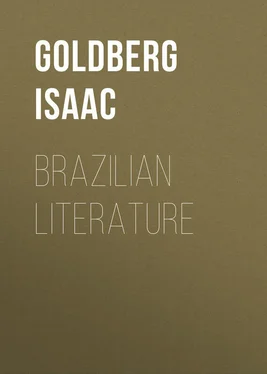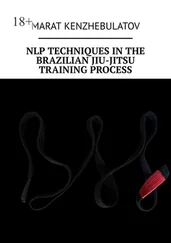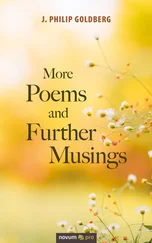Isaac Goldberg - Brazilian Literature
Здесь есть возможность читать онлайн «Isaac Goldberg - Brazilian Literature» — ознакомительный отрывок электронной книги совершенно бесплатно, а после прочтения отрывка купить полную версию. В некоторых случаях можно слушать аудио, скачать через торрент в формате fb2 и присутствует краткое содержание. Жанр: foreign_antique, foreign_prose, на английском языке. Описание произведения, (предисловие) а так же отзывы посетителей доступны на портале библиотеки ЛибКат.
- Название:Brazilian Literature
- Автор:
- Жанр:
- Год:неизвестен
- ISBN:нет данных
- Рейтинг книги:4 / 5. Голосов: 1
-
Избранное:Добавить в избранное
- Отзывы:
-
Ваша оценка:
- 80
- 1
- 2
- 3
- 4
- 5
Brazilian Literature: краткое содержание, описание и аннотация
Предлагаем к чтению аннотацию, описание, краткое содержание или предисловие (зависит от того, что написал сам автор книги «Brazilian Literature»). Если вы не нашли необходимую информацию о книге — напишите в комментариях, мы постараемся отыскать её.
Brazilian Literature — читать онлайн ознакомительный отрывок
Ниже представлен текст книги, разбитый по страницам. Система сохранения места последней прочитанной страницы, позволяет с удобством читать онлайн бесплатно книгу «Brazilian Literature», без необходимости каждый раз заново искать на чём Вы остановились. Поставьте закладку, и сможете в любой момент перейти на страницу, на которой закончили чтение.
Интервал:
Закладка:
Two chief ethnic periods of formation have been distinguished in Brazil’s development, the first from the XVIth century to the end of the XVIIIth; the second, from the opening of the XIXth century to the present day. In the first period there was, chiefly, a crossing of the Portuguese with the Indian ( mameluco ), of the Portuguese with the Negro ( mulato ) and of the Indian with the Negro ( cafuso ). Later interbreeding becomes more complex, owing to the influx of new immigrants from Europe (Italians and Germans in particular, and Slavs in the south), and to the abolition of black slavery. So that the question has arisen whether the future of the land will be in the hands of the Luso-Brazilian or the Teuto-Italo-Brazilian. Brazilians naturally favour the former eventuality and in order to insure dominance by the Portuguese-Brazilian element propose new systems of colonization as well as immigration zones. Romero reached the conclusion that the Brazilian people did not constitute a race, but rather a fusion. As to whether this was a good or an evil he answered, in his “scientificist” way, that it was a fact, and that this should be sufficient. Since the Indian is fast disappearing and as traffic in blacks was abolished in 1851, and slavery in 1888, white predominance seems assured. “Every Brazilian,” said Romero, “is a mestee, if not in blood, in ideas.” So that white supremacy, never an unmixed blessing, does not, and cannot under the circumstances, imply an unmixed mentality.
What of the effect of this milieu and this racial blend upon the nation’s tongue and its creative output? The Brazilian is by nature melancholy, for melancholy is an attribute of each of the three streams that flow in his blood. The peculiar, haunting sadness of the Portuguese lyric muse is summed up in their untranslatable word “saudade”; 11 11 Saudade. Compare English longing , yearning , or German Sehnsucht .
both the conquered native and the subjected black are sad, the first through the bepuzzled contact with superior natural forces, the second through the wretchedness of his economic position. It has been recognized that the climate of Brazil has resulted in a lyrism sweeter, softer and more passionate than that of the Portuguese. “Our language,” says Romero, “is more musical and eloquent, our imagination more opulent.” So, too, De Carvalho: “Brazilian prosody has more delicate accents than the Portuguese and numerous interesting peculiarities.”
In the matter of linguistic modification, as of racial blend and national psychology, we of the North have problems similar to those of the Brazilians, – problems often enough obscured by unscientific, sentimental fixations or political dogma. The simple fact is that life, in language as in biology, is change. Whether we are concerned with the evolution of English in the United States, of Spanish in the cluster of Spanish-American republics, or of Portuguese in Brazil, change is the inevitable law. For the Spanish of Spanish-America, Remy de Gourmont, with his insatiable appetite for novelty, originated the term neo-Spanish. It met with much opposition from the purists, yet it recognizes the ineluctable course of speech. The noted Colombian philologist Rufino Cuervo, in a controversy with the genial conservative Valera, voiced his belief that the Spanish of the new world would grow more and more unlike the parent tongue. 12 12 Rufino José Cuervo (1842-1911) was called by Menéndez y Pelayo the greatest Spanish philologist of the Nineteenth Century. A species of national pride finds vent in philological channels through the discovery of “localisms” in each of the Spanish-American republics. At the most this is of dialectic or sub-dialectic importance, but it illustrates an undoubted trend and supports Cuervo’s contentions.
In the same spirit, if with most unacademic hilariousness, Mencken has, in The American Language , 13 13 New York, 1921. Second Edition, Revised and Enlarged.
indicated the lines of cleavage between English and “American.” Brazilian scholars have naturally assumed a similar attitude toward their own language and have, likewise, met with the opposition of the purists. It does not matter, for the purpose of the present discussion, whether the linguistic cleavage in any of the instances here given will eventually prove so definite as to originate new tongues. Such an outcome is far less probable today than it was, say, in the epoch when Latin, through its vulgar form, was breaking up into the Romance languages. Widespread education and the printing press are conserving influences, acting as a check upon capricious modification.
One of the soundest and most sensible documents upon the Portuguese language in Brazil comes from the pen of the admirable critic José Verissimo. 14 14 Estudos de Literatura Brazileira. Sexta serie. Rio de Janeiro, 1907. Pp. 47-133.
“As a matter of fact,” he writes, “save perhaps in the really Portuguese period of our literature, which merely reproduced in an inferior fashion the ideas, the composition, the style and the language of the Portuguese (already entered upon its decadence), authors never wrote in Brazil as in Portugal; the masters of language abroad never had disciples here to rival them or even emulate them… It would be a pure absurdity, then, to expect the Brazilian, the North American or the Spanish-American to write the classic tongue of his mother country.”
Chaucer wrote “It am I” where we would say “It is I” and where current colloquial usage, perhaps foreshadowing the accepted standard of tomorrow, says “It’s me.” English changes in England; why shall it cease to change in the United States? And justly, Verissimo asks a similar question for Brazil. “I have always felt,” he remarks somewhat farther on, “that the Portuguese tongue never attained the discipline and the relative grammatical and lexical fixity that other languages arrived at. I do not believe that among cultured tongues there is one that has given rise to so many controversial cases, or to so many and so diverse contradictions among its leading writers.” The fight about the collocation of personal pronouns is waged so earnestly in Brazil that it has become as funny, in some of its aspects, as the quarrel of the “lo-istas” and the “le-istas” in Spain. And so true are Verissimo’s words that as late as March, 1921, a writer could complain in the Revista do Brazil 15 15 An important monthly published at São Paulo, then under the editorship of Srs. Afranio Peixoto and Monteiro Lobato.
that “we are at the very height of linguistic bolshevism”; the very next month, indeed, the editorial board of the same representative intellectual organ found it necessary to comment upon the various systems of orthography employed by its contributors and to designate a choice. 16 16 Note, for example, the various spellings of the word literature here used as in the originals.
Verissimo, in accordance with A. H. Sayce, takes as his standard of grammatical correctness that which is “accepted by the great body of those who speak a language, not what is laid down by a grammarian.” Still more to the point, Verissimo, who was a man of exemplary honesty and fearlessness in a milieu that easily tempts to flattery and the other social amenities, declares that “if we are by language Portuguese, if through that tongue our literature is but a branch of the Portuguese, we have already almost ceased to be such … because of our fund of ideas and notions, which were all constituted outside of Portuguese influence.” The important thing, then, is “to have something to say, an idea to express, a thought to transmit. Without this, however deep his grammatical knowledge of the language, however perfectly he apes the classics, no man is a writer.” Platitudinous, perhaps, but how often some platitudes bear repetition!
Интервал:
Закладка:
Похожие книги на «Brazilian Literature»
Представляем Вашему вниманию похожие книги на «Brazilian Literature» списком для выбора. Мы отобрали схожую по названию и смыслу литературу в надежде предоставить читателям больше вариантов отыскать новые, интересные, ещё непрочитанные произведения.
Обсуждение, отзывы о книге «Brazilian Literature» и просто собственные мнения читателей. Оставьте ваши комментарии, напишите, что Вы думаете о произведении, его смысле или главных героях. Укажите что конкретно понравилось, а что нет, и почему Вы так считаете.












